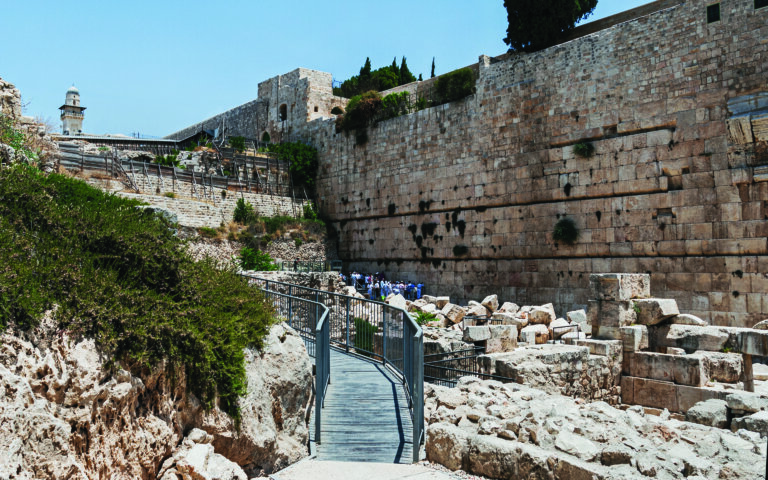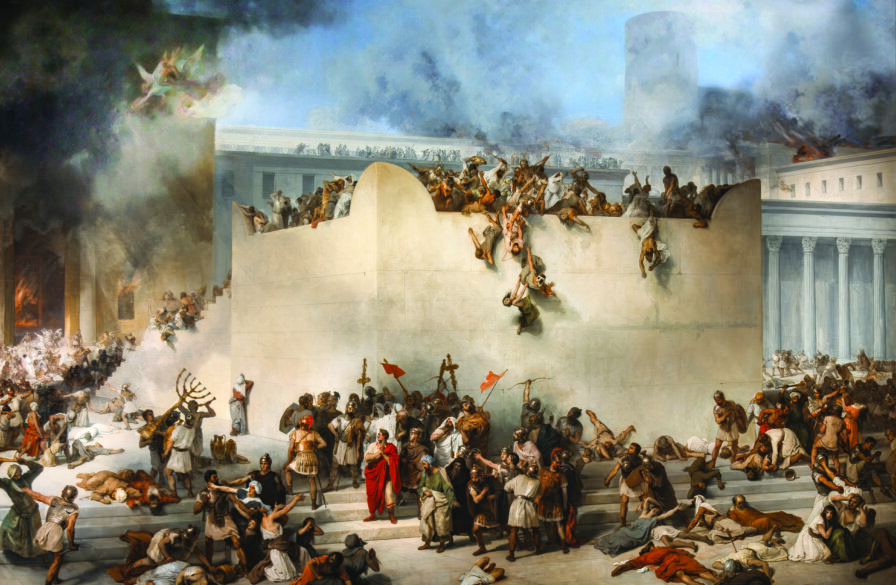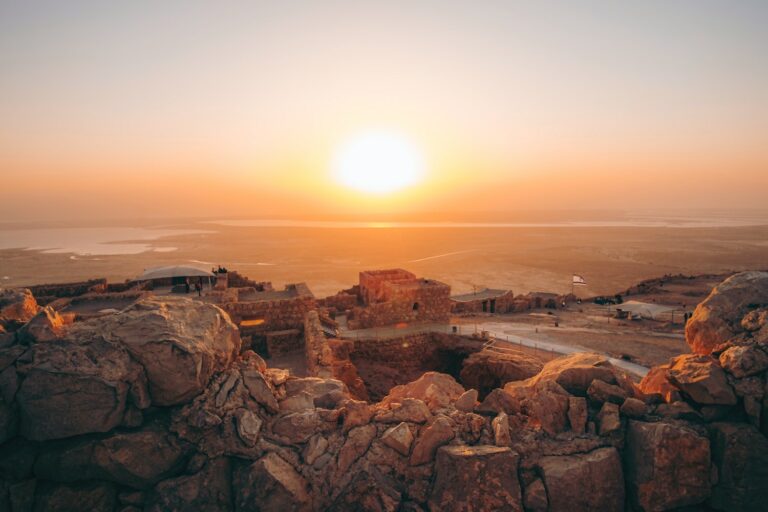by Dr. Mojmir Kallus, ICEJ Vice President for International Affairs & Maxine Carlil, ICEJ Australia editor
Jesus and the Temple
Like all Jews, Jesus loved the temple, he honoured it with his presence and protected its purpose. He drove out the money changers and sellers of livestock because they had contaminated the sanctity of the temple by making it into a house of merchandise, an opinion shared by many at that time (John 14:14-17). He quoted Isaiah 56:7 and Jeremiah 7:11 to remind them that God’s House “…shall be called a House of Prayer…” His disciples noted his ‘zeal for the temple’ like the psalmist in Psalm 69:9. And no wonder – the Temple was built for: worship, fellowship, a place to meet God on His ‘appointment’ days, and a place of repentance. It spoke of the Presence of God, His grace and redemption and represented His heavenly throne. On it, God placed His Name (1 Kings 8:29).
He also prophesied its destruction in Luke 21:5-6, “Then, as some spoke of the temple, how it was adorned with beautiful stones and donations, He said, ‘These things which you see—the days will come in which not one stone shall be left upon another that shall not be thrown down.’”
ICEJ’s Vice President for International affairs gives a beautiful message that comes from this tragedy:
The main Biblical festivals divide the year into seasons. Passover and Shavuoth (Pentecost) are spring feasts at the beginning of the agricultural season, while Sukkot (Tabernacles) marks the fall harvest. Between them comes the long, hot Israeli summer, with blue skies and not even a drop of rain. For ancient farming societies, summer was a time of labouring in the fields. No major holidays are observed during the summer months of Tammuz, Av and Elul. Yet each month carries a spiritual message.
One theme resonates throughout the summer months: mourning the tragedies in Jewish history, in particular the destruction of the Temple. It starts in Tammuz with the fast of the fourth month on the 17th of Tammuz – which commemorates the day when the walls of Jerusalem were breached. “In the eleventh year of Zedekiah, in the fourth month, on the ninth day of the month … the city wall was broken through.” (Jeremiah 52:6-7). Six hundred years later, at approximately the same time, the walls of Jerusalem were breached by the Romans in 69 AD. In both cases, the Temple was soon destroyed.
The 17th of Tammuz marks the beginning of a period known as The Three Weeks. This is an annual mourning period, when Jews mourn the destruction of the Temple and consider the cause of their exile. It is a time of repentance and soul searching, which concludes with the fast of the 9th of Av (Tisha B’Av in Hebrew), when both Temples were set aflame (423 BC and 69 AD). Numerous other tragedies also occurred in Jewish history during this period, so tradition says rejoicing during these three weeks should be diminished. On Tisha B’Av, Lamentations is read in the synagogues, and the Jewish people reflect on the causes of these tragedies.

In contrast, immediately following Tisha B’Av and continuing for seven weeks into the month of Elul is a period called the Seven Weeks of Comfort, or Menachem Av (“consoling Father”). Menachem in Hebrew is a variant of the word nachamu, which appears in Isaiah 40:1 – nachamu ami or “comfort my people”. Interestingly, in Jewish tradition there is a strong connection between Tisha B’Av and this passage from Isaiah. The Shabbat following the 9th of Av is called Shabbat Nachamu and as a Haftara (prescribed reading from the prophets), this portion of Isaiah 40 is read. God is their Father and He comforts His chosen people. Mercy triumphs over judgement – that is the ultimate message of the period.
This is of particular importance to the ICEJ, as our founding mandate from 1980 was and remains “nachamu, nachamu ami” (“Comfort, yes, comfort My people”). It is good to know that in rabbinic tradition, this verse is closely connected to Tisha B’Av and the idea of God consoling His people after a great tragedy. In fact, Jewish sages have said that the destruction and exile go hand-in-hand with redemption. Indeed, the “comfort” of Isaiah 40:1 heralds the coming Messiah.
It turns out that comforting Israel is not just some humanitarian mission, it is deeply spiritual and prophetic.
We also see this connection in the Greek translation of Isaiah 40:1 in the Septuagint, which is parakaleite ton laon mou. Here, the word for “comfort” has the same root as the Greek word “Parakletos,” the “Comforter,” the New Testament term for the Holy Spirit.
It follows that such act of comfort is Divine activity, inspired by the Holy Spirit. The Parakletos does the comforting, not merely human efforts. When God commands us to “comfort My people” in Isaiah 40, it means that God has given Gentile believers a ministry of comfort led by the Holy Spirit. And truly, we cannot comfort Israel without His Spirit.
So, the ultimate message of this summer period of remembering all of Israel’s tragedies is that mercy triumphs over judgement. We live at a time when God is comforting His people again. And inspired by the Holy Spirit, we as Gentile believers can “speak to the heart of Jerusalem, and cry out to her, that her warfare is ended, that her iniquity is pardoned; for she has received from the Lord’s hand double for all her sins” (Isaiah 40:2).
Images courtesy of ICEJ International




